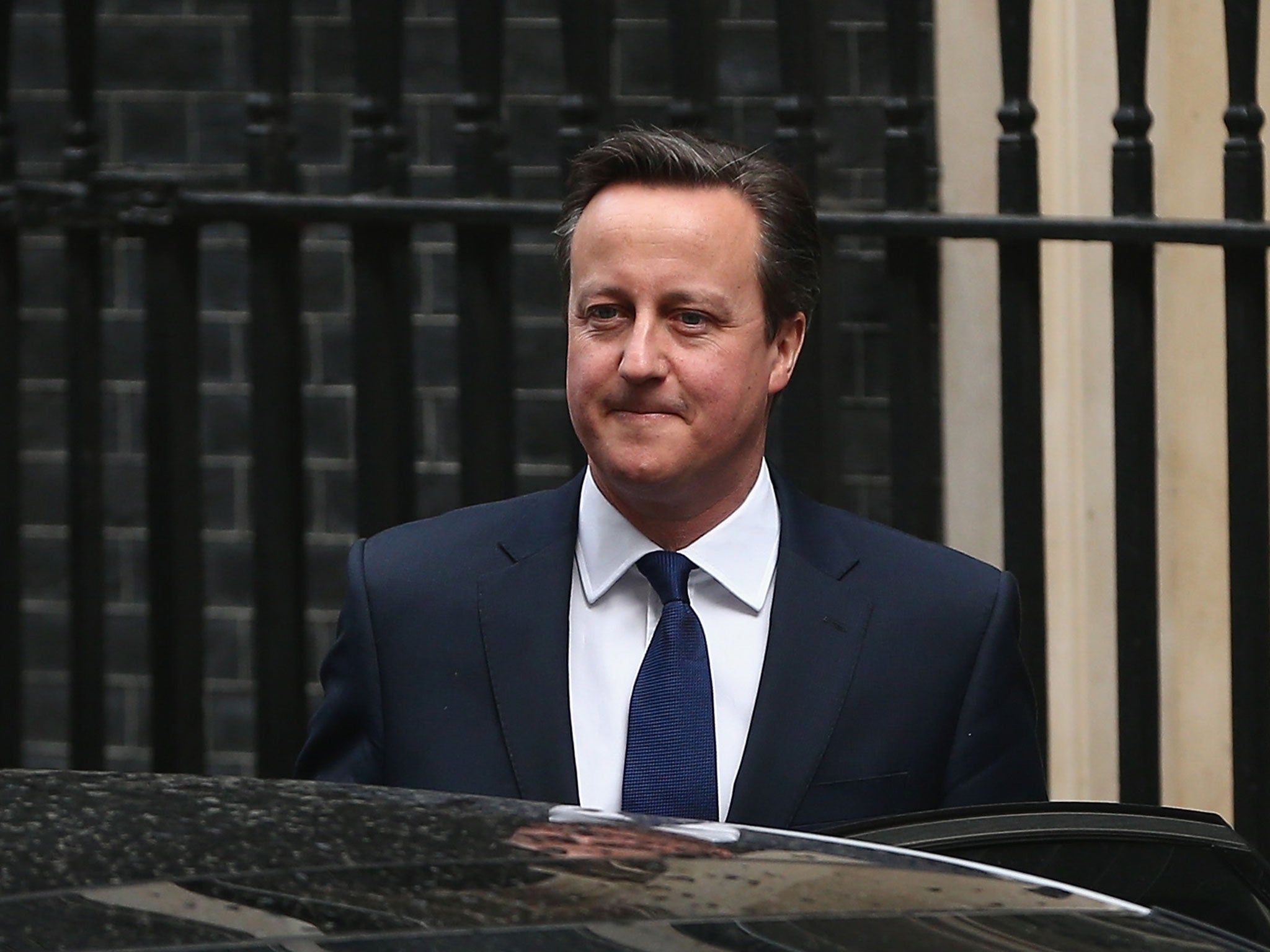Cameron At 10: The Inside Story 2010-2015 by Anthony Seldon & Peter Snowdon, book review
Many of the authors' judgements seem sketchy and provisional, which isn't helped by their decision to write most of the book in the present tense

This is the other book about David Cameron, the one that doesn't include colourful, unverified stories about his university life. Not so sensational, but more interesting, Anthony Seldon's instant histories of prime ministers, John Major, Tony Blair, Gordon Brown and now Cameron, are the bedrock of contemporary history.
Like Lord Ashcroft, though, Seldon and his co-author Peter Snowdon wrote most of this book before the election, assuming that Cameron would be a five-year prime minister. He is mainly portrayed as valiantly fending off the forces always about to overwhelm him.
Only at the end of the book does the narrative suddenly change, with an election victory that Cameron was not expecting, and he emerges, blinking, modest, into the sunlight as one of the most successful prime ministers of democratic times.
Many of their judgements of Cameron, therefore, seem sketchy and provisional. This is not helped by their decision to write most of the book in the present tense, “to help capture the unrelenting pace of events”. Sadly, all it did was irritate this reader and undermine the authority of the writers.
There were three episodes in which I was most interested. First, the decision to launch air strikes on Libya in 2011, initially to save the people of Benghazi from Gaddafi's vengeance. Here, the immediacy of the account is telling, but not to Cameron's advantage.
He thought he had learned the lessons of Iraq. Instead of Blair's supposed “sofa government” – a myth, as Seldon doesn't quite acknowledge – Cameron set up a National Security Council. But the intervention worked out no better. After several months, when Gaddafi's forces collapsed and their leader was killed, Cameron was “boyishly excited”, feeling “vindicated”.
He was “cautiously optimistic” about the future – “too optimistic, it turns out”, observe the authors, without any further attempt to assess what a better policy might have been.
The second episode was the decision in the 2012 Budget to cut the top rate of income tax from 50p in the pound to 45p. George Osborne wanted to cut it all the way back to 40p, but Cameron thought that would be “going too far, conscious as ever about the move being portrayed as favouring the wealthy”.
They agreed on 45p, and Nick Clegg accepted that in return for a further rise in the tax-free personal allowance. It was a significant decision, and did indeed allow the Tories (but not the Liberal Democrats) to be portrayed as the party of the rich.
We are told little more about the calculations behind the change, but there are some intriguing lines between which to read. One of the drafts of Cameron's words for outside No 10 after election victory contained the phrase, “closing the gap between rich and poor”, which he rejected as “too Milibandy”.
The third episode was Cameron's speech in January 2013, promising a referendum on Britain's membership of the EU. This time the authors offer a detailed account of Cameron's thinking.
He felt the pressure from the public would build, that Ukip would grow even stronger and that his party would become unmanageable. He told a “horrified” Kenneth Clarke: “We can't get away without having one.”
Yet the authors also say that Osborne had reservations, without discussing what they were or how the debate was resolved between them.
That referendum decision is one that is still live. It could finish Cameron's premiership and trash his reputation if Britain votes to leave, although it won't be until at least next year that we find out. Perhaps they should have written the book in the future tense.
Join our commenting forum
Join thought-provoking conversations, follow other Independent readers and see their replies
Comments
Bookmark popover
Removed from bookmarks